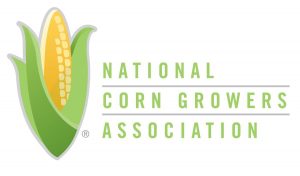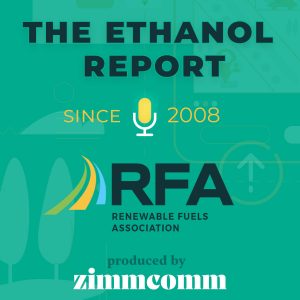 Despite no official announcement, technically once the August 31 deadline passed, all U.S. ethanol shipped to Brazil became subject to a 20 percent tariff. However, U.S. exports to Brazil have already been declining this year, according to the Renewable Fuels Association (RFA).
Despite no official announcement, technically once the August 31 deadline passed, all U.S. ethanol shipped to Brazil became subject to a 20 percent tariff. However, U.S. exports to Brazil have already been declining this year, according to the Renewable Fuels Association (RFA).
The latest government data shows U.S. ethanol exports down to 74 million gallons in July, a decrease of 38 percent compared to the same month last year and the lowest total for July in six years. The escalation of trade barriers and the impacts of COVID-19 have caused year-to-date ethanol exports to drop nine percent compared to the same period last year and 22 percent compared to the same period in 2018.
In addition to Brazil, RFA notes that virtually no U.S. ethanol was shipped to China or Colombia in July due to the existence of unjustified trade barriers in those countries. Combined export volumes to all three countries hit a peak of 129 million gallons in March 2018, but dropped to a trickle of just 34,000 gallons in July 2020. Prior to August 31, the Brazilian tariff rate quota had allowed 198 million gallons of U.S. ethanol imports before the 20% tariff kicked in.
“As the July export numbers show, the spread of protectionist trade barriers around the globe is having a very real impact on demand for U.S. ethanol,” said RFA President and CEO Geoff Cooper. “These tariff and non-tariff barriers must be addressed and countered with measures that ensure a fair and level playing field for ethanol trade. The persistent ethanol trade disputes involving key markets like Brazil, China, and Colombia are taking a serious toll on U.S. ethanol producers who are already contending with the economic fallout from COVID-19. More needs to be done to restore open and healthy ethanol trading relationships with our customers around the globe.”
House Agriculture Committee Chairman Collin Peterson says Brazil’s move is just more bad news for producers already struggling because of the coronavirus and the “Environmental Protection Agency’s reckless implementation” of the Renewable Fuel Standard. “The Trump Administration should continue working with Brazilian officials to restore the duty-free access that was in place from 2012 to 2017,” Peterson said in a statement. “Tariff wars have consequences, and our biofuels producers are seeing that first hand.”
Meanwhile, Iowa Renewable Fuels Association Executive Director Monte Shaw points out that Brazilian ethanol imports continue to enjoy tariff free status coming into the U.S. “President Trump stated his Administration would pursue an equalization of tariffs if Brazil took this step. We look forward to quick action on this front as Brazil continues to flood the California market with duty-free ethanol while at the same time penalizing U.S. producers,” said Shaw.
U.S. ethanol production continues to run below year ago levels. For the week of August 28, production remained nine percent below the same week in 2019 as a result of the continuing effects of the COVID-19 pandemic. The four-week average ethanol production rate declined 0.2% to 924,000 b/d, equivalent to an annualized rate of 14.16 billion gallons. At the same time, ethanol stocks grew 2.3% to 20.9 million barrels, which was 12.3% below year-ago volumes.
 A virtual event is being held this afternoon (September 10) with the co-chairs of the Next Generation Scientists for Biodiesel to let them show some of the real-world impacts of their biodiesel research and outreach.
A virtual event is being held this afternoon (September 10) with the co-chairs of the Next Generation Scientists for Biodiesel to let them show some of the real-world impacts of their biodiesel research and outreach.

 The
The  Ethanol supporters are encouraged by
Ethanol supporters are encouraged by  Despite no official announcement, technically once the August 31 deadline passed, all U.S. ethanol shipped to Brazil became subject to a 20 percent tariff. However, U.S. exports to Brazil have already been declining this year, according to the
Despite no official announcement, technically once the August 31 deadline passed, all U.S. ethanol shipped to Brazil became subject to a 20 percent tariff. However, U.S. exports to Brazil have already been declining this year, according to the  Five of the most prominent northeast heating oil trade associations recently launched a collaborative effort to promote clean, renewable Bioheat to consumers and get more heating oil companies to begin offering Bioheat to their customers.
Five of the most prominent northeast heating oil trade associations recently launched a collaborative effort to promote clean, renewable Bioheat to consumers and get more heating oil companies to begin offering Bioheat to their customers. Building out the infrastructure needed for future mid-level blends of ethanol continues to be a priority of the
Building out the infrastructure needed for future mid-level blends of ethanol continues to be a priority of the  Farmers Business Network (FBN) has announced a new initiative called
Farmers Business Network (FBN) has announced a new initiative called  The
The 
 CHS, the nation’s leading agribusiness cooperative owned by farmers, ranchers and cooperatives, produces 260 million gallons of fuel-grade ethanol and markets 900 million gallons of ethanol each year, making CHS one of the nation’s largest suppliers of ethanol-enhanced gasoline and the largest U.S. retailer of E85 ethanol.
CHS, the nation’s leading agribusiness cooperative owned by farmers, ranchers and cooperatives, produces 260 million gallons of fuel-grade ethanol and markets 900 million gallons of ethanol each year, making CHS one of the nation’s largest suppliers of ethanol-enhanced gasoline and the largest U.S. retailer of E85 ethanol.